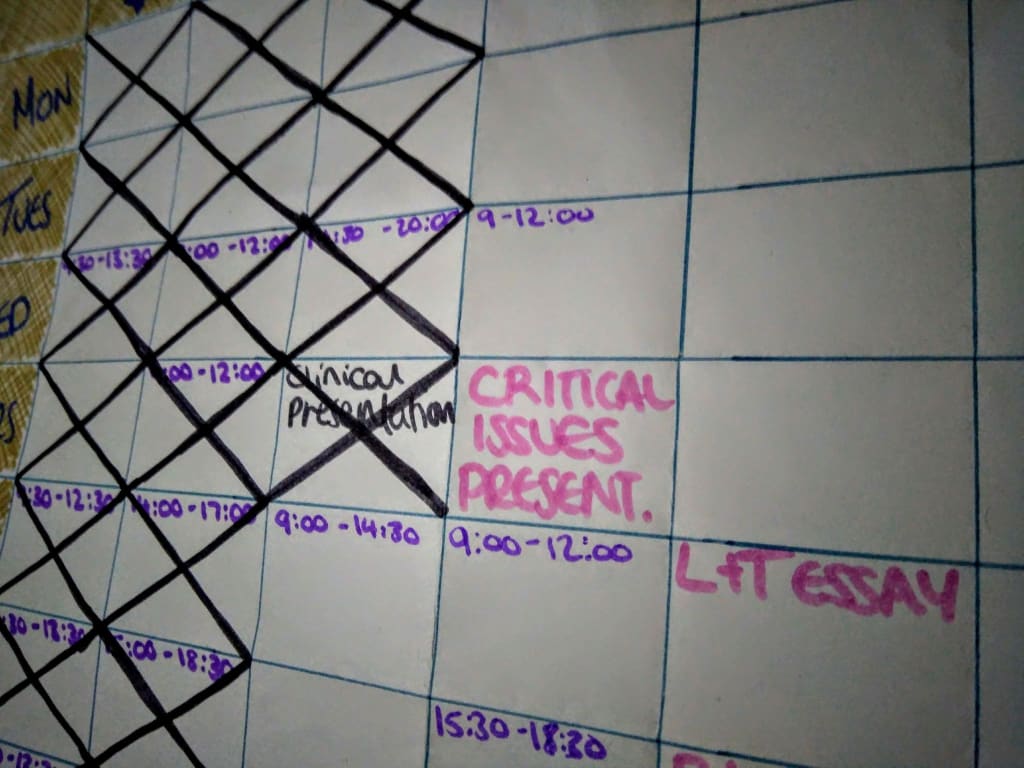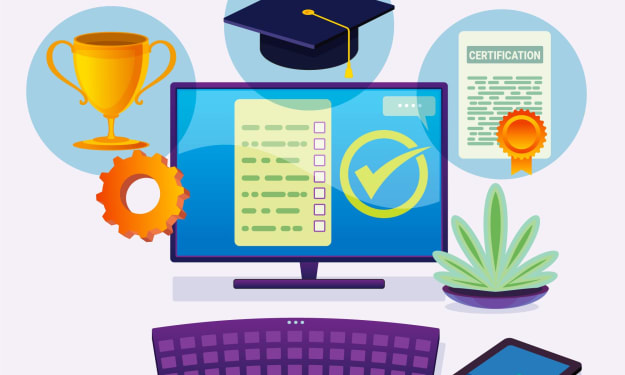Five Tips for Student Productivity
For Those Who Find No Comfort in the Usual Tips

Studying can be hard at the best of times. Usually, if you're looking for study tips, you hear the same things regurgitated over and over again; make a study guide, take breaks every forty-five minutes, eat healthily, and the sorts. Whilst that all seems well and good, it's not always great for everyone. Sure, there might be some research behind it to say how long your brain can stay focused, or some piece about how organising your time helps you to balance your life, but realistically it's not always going to work.
I'm a third-year human sciences student, currently working towards my dissertation, and I know how it works after years of battling with these methods. They have never worked for me whatsoever. I usually leave things to the night before they're due and can still whip out a 67 percent, but the stress isn't worth it. Yet, nothing that any of the standard tips offer me is enough to break that sort of cycle. I've had to work it out myself over the past few years, and luckily this year I've started out pretty well by following my own set of tips.
1) Create noise.
I'm starting out with one that might work for a lot of people, but won't necessarily work for everyone. It completely depends on your own personal preferences, but I honestly find it much easier to get distracted when I'm studying or writing a paper in complete silence. It's a lot easier to get distracted by everything else that's running through your head when your study space is completely silent, from what I've found. But music isn't necessarily the best option. Ever find yourself unable to focus on what you're reading or searching because you're singing along with your music playlist? Music with lyrics is probably the worst for getting distracted, from what I've found.
On the contrary, there are some forms of noise that work particularly well. The first is video game music. There are a number of video game music playlists on YouTube to listen to, with a total play time of over 40 hours, and usually it's nice to be able to listen to them again after you've finished the full playlist. The theory behind this is that video game music is specifically composed to make it feel as if you're working towards a target and therefore increase productivity. On top of that, it can spark nostalgia and help you to relax.
The second form would be various white noise and ASMR videos. This can be anything from wind and rain noises, to the sound of winter leaves or eating, or even cafe sounds. They can even be layered so that it creates the optimal background noise to calm and motivate you. For example, my personal favourite noise at the moment is layered Seoul Starbucks and rain on windows ASMR videos, with the rain noises turned down enough to be able to hear the coffee shop primarily. It helps to block out background noise when you live in a busy area, too, which is always a bonus.
2) Study in a library instead of your bedroom.
If you have internet in your house (as a lot of people do, but surprisingly mine was bad in the first year and non-existent in the second year), it's tempting just to stay in your room to study. Then if you're very easily distracted, work is just simply not going to get done. Every five minutes something else pops up — you can see the mess in the background and have to get up to tidy, you realise that you have unwashed dishes or laundry, your housemates ask if they can spend time with you and you end up watching videos online until midnight...
In the library, those problems can be fixed straight away. You're too far away to just get up and do any of those things before returning to your studies. If your friends are in the library, typically they won't be planning on distracting you. Your phone and laptop generally have to be silent so that they're not disturbing anyone else, too. It puts a barrier between the places where you relax and the places where you study. Plus if the library closes at a certain time, you can aim to get a certain amount of work done by the time it shuts.
3) Take naps if you need them.
There's no other way to say this. Student mental ill health is on the rise, and that's exhausting. Constant studying and stress are also exhausting. Having absolutely everything piled on your plate at once is exhausting. Whether you have five contact hours a week or twenty, and whether you spend your spare time studying or working at a part-time job, everything to do with student life just tires you out. As a teenager, it's usually suggested that you don't get into the habit of having naps, but frankly giving in to the temptation sometimes is better than just trying to power through it.
Taking that time to rest up can get you motivated to start again, provided that you have a short 20-40 minute nap to bring back your energy. It's easy just to pour out whatever initially comes to mind when you're tired, just to get it out of the way, but it's best just to leave it and work again once you're feeling more energetic so that you're actually thinking about what you're writing. On top of this, it can also give you a fresh look at things. If you're taking a bit of time away to relax, you can look at what you've written and see whether it makes sense again without it being so familiar that you miss the mistakes.
4) Make time for other things.
Whether it's writing other things, like chapters of the story that you're working on, playing video games, or even exercising, you do still need time away from studying. As deadlines approach, stress increases and it's not great for your mental health or productivity to be working on the same thing constantly. If you've spent the entire morning working on an assignment and your deadline isn't too close, perhaps spend the afternoon doing something that makes you happy and relaxed. If you finished your lectures and went straight to the library to work on a paper, perhaps finish by eight or nine o'clock, then go for a jog and have a shower before bed.
It's still incredibly important to make sure that you do things to de-stress. Even though you have so many things coming at you at once, it's hard to handle it without breaks. It works similar to the last tip; you're not going to produce your best work if you're constantly on edge and feeling as if you're under pressure, so it's both reasonable and necessary to make sure that you're taking time away here and there. Perhaps try to avoid spending full days slacking off, unless you've just submitted an assignment and need to reward yourself for a job well done, but at least a half hour here and there to do things that you enjoy is perfectly fine.
5) Treat yourself.
You're balancing a lot and you're doing great. Find something to treat yourself with for meeting various milestones. You've managed to study every day one week? Play that video game that you've wanted to play for weeks. You've finally handed in that assignment that you've been working hard on? Treat yourself to pizza and ice cream.
Even treats for smaller milestones is fine and helps to keep you working towards your goals. If you always let stress get on top of you and managed to get through the week without it happening, you can still treat yourself to that makeup or that book that you want. If you've been struggling on that assignment and finally hit the halfway point, feel free to get yourself a chocolate bar on your way home. If you struggle to say no, but this time you managed to reject an invitation to go out so that you could work on your assignments, follow it up the next day by catching up on your favourite show.
It's the little things that make it all worth it. Your treat can be anything from getting yourself a rewarding snack to arranging a holiday for after your exams and the possibilities are endless. It's something to look forward to and get you through the hard times, even if you're struggling and need to take things a step at a time.
As with all tips, they won't necessarily work for everyone, but it's worth giving it a shot if you're tired of the usual productivity tips that assume that organisation and study slots are a foolproof plan.
About the Creator
Liam Badger
I'm a psychology student, lifeguard and TEFL teacher with a variety of different interests, from language to sewing, baking to swimming, and music to drawing. I'm very opinionated in general, but certainly up for debates over any topics.






Comments
There are no comments for this story
Be the first to respond and start the conversation.